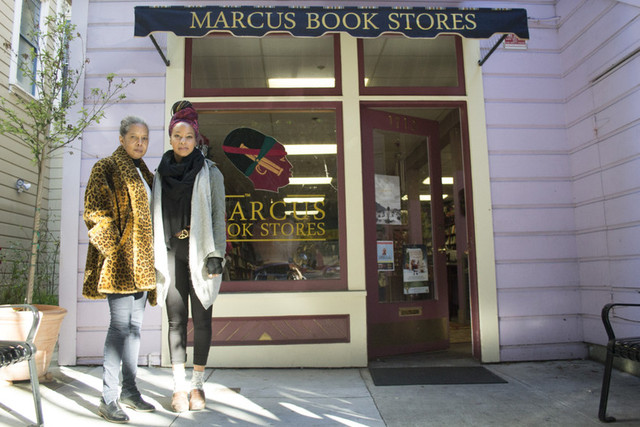
Community activists in San Francisco are teaming with a new grassroots investment network to try to save the longtime Fillmore Street home of Marcus Books, the historic African-American bookstorethat has faced eviction since earlier this year.
Marcus Books and the San Francisco Community Land Trust announced a deal Thursday with the owners of the store's famous lavender Victorian to acquire the property for $2.6 million.
The deal is a little complicated: $1.6 million will come from Westside Community Services, a health-services group. The land trust will try to raise the remaining $1 million through Fundrise, a Washington, D.C.-based grassroots-funding startup that allows small investors to buy stakes in real-estate developments and business ventures. The full $2.6 million needs to be raised by next Feb. 28, or the San Francisco location of Marcus Books (it has a second location in Oakland, a block from MacArthur BART), will be out on the street. If the fund-raising effort succeeds, then the land trust will own the building and Marcus Books will continue as a tenant "in perpetuity."
The San Francisco store, opened in 1960 by Raye and Julian Richardson and now operated by their children and grandchildren, wound up in bankruptcy after taking out a high-interest loan during the real estate bubble. Karen Johnson, one of the Richardsons' daughters, said she believes the community movement to save the store holds a larger meaning. "Humanity is being rekindled ... and this is a sign that people like wisdom and compassion and taking care of other people."
The land trust's Tracy Parent says the Fundrise model may prove to be a valuable tool for those looking for ways to save affordable housing amid the rapidly escalating prices in today's housing market.